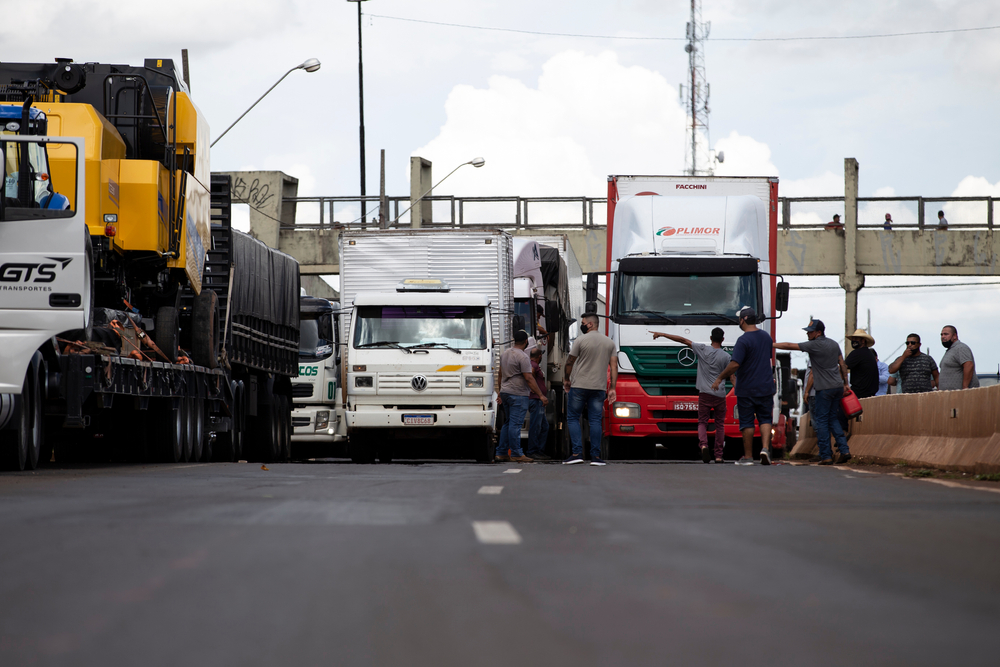With fears of a new nationwide truckers’ strike tomorrow, the Solicitor General’s Office filed 36 lawsuits in federal courts to forbid protesters from blocking federal roads for the circulation of people and goods. So far, the effort has resulted in 24 favorable injunctions, per the Infrastructure Ministry — forbidding blockages and fining individuals and companies who fail to comply with the courts’ decisions.
Companies and individuals violating the injunctions will receive daily fines ranging from BRL 2,000 to 100,000 (USD 355 to 17,750).
Despite the decisions from multiple courts, unions are set on switching off their engines on November 1, in protest against skyrocketing fuel prices and with demands for regulations ensuring themselves better working conditions.
In 2018, an 11-day strike created fuel and food shortages all over the country and caused billion-dollar losses to multiple sectors of the economy. A similar movement amid a scenario of enduring high unemployment, rising inflation, poverty rates, and voter dissatisfaction could be catastrophic for the government.
Since the 2018 strike, the sector has tried 16 times to stage a similar protest, never succeeding. But judging by Jair Bolsonaro’s reaction, there might be a reason for concern now. The president last week announced a relief package to help truckers pay for fuel — diesel prices have gone up by more than 32 percent in 2021 — and the Infrastructure Ministry raised minimum cargo transport prices.


 Search
Search






































